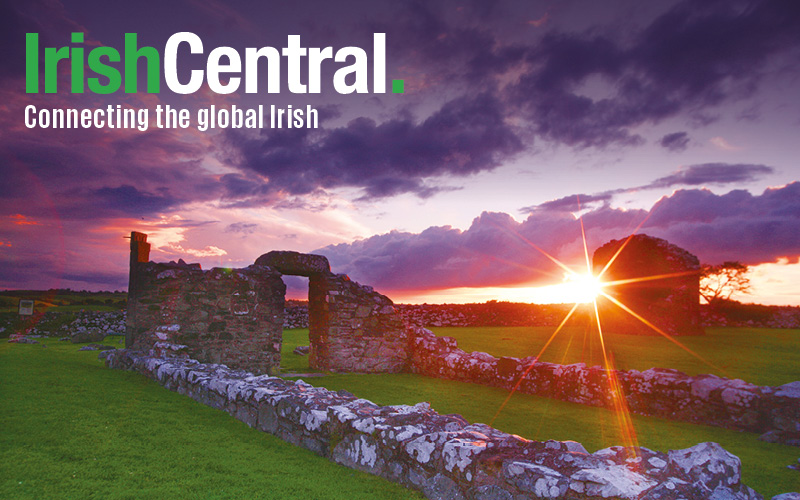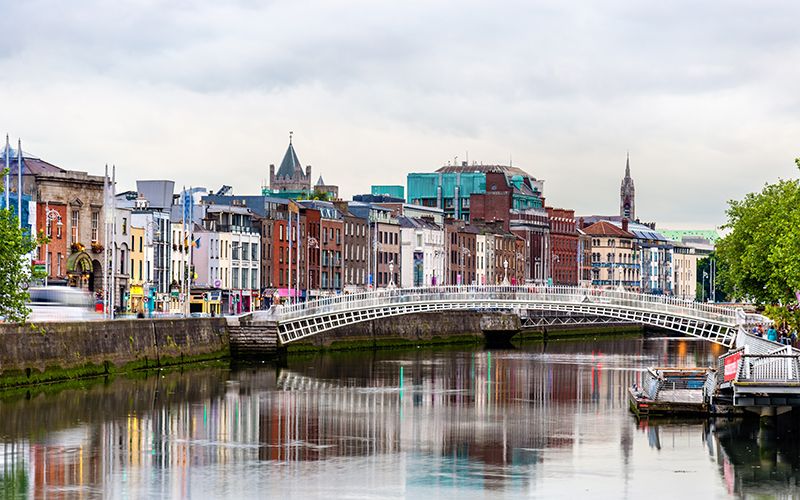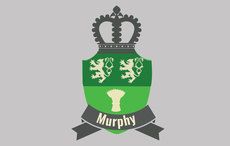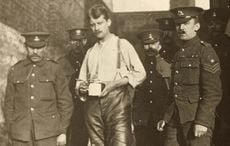News / Dan Brown's 'Lost Symbol' comes to life in Ireland to rock Freemasons / Click here
They're back!
The Freemasons, the group that is at the center of more conspiracy theories than any other in history — perhaps even more than the Catholic Church — have made another comeback of sorts in Dan ("The Da Vinci Code") Brown's new book, "The Lost Symbol." And as if this wasn't enough, a lawsuit in Ireland is beginning to excite the world with the prospect that the secrets of the organization will finally be revealed.
I don't imagine that this disclosure would be looked upon kindly by Freemasons. It's not much fun being part of a secret organization with its own rituals and initiations and handshakes if it's suddenly not secret. But I think it would be wonderful to finally know what makes the Masonic clock tick. (It would be nice to know what makes the Vatican tick, too, but we'll leave that for another time. And an author besides me!)
I hasten to add that the best-selling "Lost Symbol," like all Brown's works, is a novel. It is a work of fiction, and one by a very talented, creative and successful writer. I have read them all, mostly enjoyed them, and I intend to read this one as soon as a copy makes its way to the mission center.
If you're Catholic, and especially if you're Irish Catholic, you know that Masons hate us, and always have. So, we hate them. You know that they are conspiring against us, and have some sort of plan for global domination they have been working on since they started all this in the 16th Century. So far, the plan hasn't worked out so well, but global domination takes time. You also know that almost all the rich and powerful men (women aren't allowed) in the world are Masons — all the better to dominate the world, of course.
In my family and my extended Irish clan, mentioning the Masons, or even walking on the same side of the street as one of their lodges that was on my way to elementary school, was a major no-no. Back then, it would have been easier to talk about sex in an Irish Catholic household than chat about the Masons.
I did the unthinkable when I came to New York to attend college and soon after, follow my vocation: I visited a Masonic lodge. I remember making a conscious decision not to wear my Roman collar for the visit; I'm not sure what I thought would happen, but Irish Catholic guilt has a long shelf life, and I thought I should play it safe lest I fall through a trapdoor or wind up in a hall of mirrors or in a room of doors with question-marks on them — one of which I would have to choose to open.
None of this happened, and I have lived to tell the tale.
The lodge I visited is a biggie, in the Chelsea section of Manhattan. On the outside, it is a very ordinary office building, impossible to distinguish from the old Depression-era brick buildings around it. But inside, my goodness! (If that's the right word...) Its huge public rooms (you can see a slideshow here) are spellblindingly beautiful and opulent, filled with the finest woods, stone and marble, all built with unassailable craftsmanship. It's not St. Peter's Basilica, but it's no cold-water flat, either.
In a way, the lodge building is a perfect metaphor for what we know — or really, what we don't know — of the Masons: The outside gives no hint of the inside. It keeps its secrets. It is a book that cannot be judged by its plain cover.
But the Masons certainly have been judged, and found guilty by just about everybody.
Most Christian churches, and especially the Roman Catholic Church, condemn them, believing that they are a religion with its own "God," or, in the words of the Church, the Masons have a "deistic" set of beliefs that are contrary to Christianity and are heresy. For a while, even the Society of Jesus, of which I am a member, was thought to be part of the worldwide Masonic cabal (We're in the clear, now. I think...). Today, if a Catholic becomes a Mason — the Masons have no issue with this, by the way — he could not receive the Sacraments. In fact, until 1983, he would have been excommunicated. While many thought Vatican II's reforms would mean a thaw in this cold war, anti-Masonic Church policy was clearly restated by, coincidentally, the man who is now Pope, Benedict XVI.
The Catholic Church usually takes the rap in the modern world for going its own judgmental way on issues like Freemasonry, accused of condemning what it doesn't understand — but in this case, we have, and have had, plenty of company. And not just our fellow religions! Many 20th and 21st Century regimes have been lined up against them, too. Adolf Hitler and the Nazis, Communists, Fascists, Saddam Hussein, and even the terrorist Hamas organization have all condemned or still condemn Freemasonry.
To say the least, these aren't the Church's usual bedfellows, and like it or not, "our side" has even more odd allies.
The Masons are a favorite of conspiracy theorists, who have said all U.S. Presidents were Masons (actually, just 14), that they orchestrated the assassination of President Kennedy, faked NASA missions, are behind the Ku Klux Klan and Yale University's Skull and Bones society (which President George H.W. Bush was a member of), and that Jack the Ripper was a Mason whose murders were Masonic rituals. Yes, even 9/11 makes it into the list. There's lots more, but you get the idea.
What to make of all this?
As I simply don't believe there is evidence that this strange, ancient organization represents a threat to humanity, religion, spirituality, or peace -- and certainly not Our Loving God — I am content to let them go their way, as we go ours. So far, that approach seems to have worked out just fine. I don't understand them, and I'm not sure that even the Vatican theologians who have studied them for centuries — and they are far more-schooled and studied than I in this kind of painstaking research — do, either. Yet, we condemn, as do many. Are we right to do so, when we know so little?
In the later part of his life as a speaker and lecturer, the great Mark Twain often told a satirical story about Satan's "predicament." It makes a point, and it's worth a replay:
"I have no special regard for Satan; but I can at least claim that I have no prejudice against him. It may even be that I lean a little his way, on account of his not having a fair show. All religions issue bibles against him, and say the most injurious things about him, but we never hear his side. We have only the evidence for the prosecution, and yet we have rendered the verdict! To my mind, this is irregular. It is un-English. It is un-American. IT IS FRENCH! Without this precedent, Dreyfus could not have been condemned. As soon as I can get at the facts I will undertake his rehabilitation myself... It is a thing we ought to be willing to do for anyone who is under a cloud. We may not pay him reverence, for that would be indiscreet, but we can at least respect his talents! A person who has for untold centuries maintained the imposing position of spiritual head of four-fifths of the human race -- and political head of the whole of it — must have executive abilities of the loftiest order. I would like to meet him. And I probably will..."
God bless you all!
— Father Tim
Father Tim is a Jesuit missionary, trained in New York and Boston, who writes about the spiritual side of life. An Irish-American, he loves hearing from readers – not about theological arguments, but real-life issues that matter to you. He’s a friend you can trust, and you will always be in his prayers.




Comments